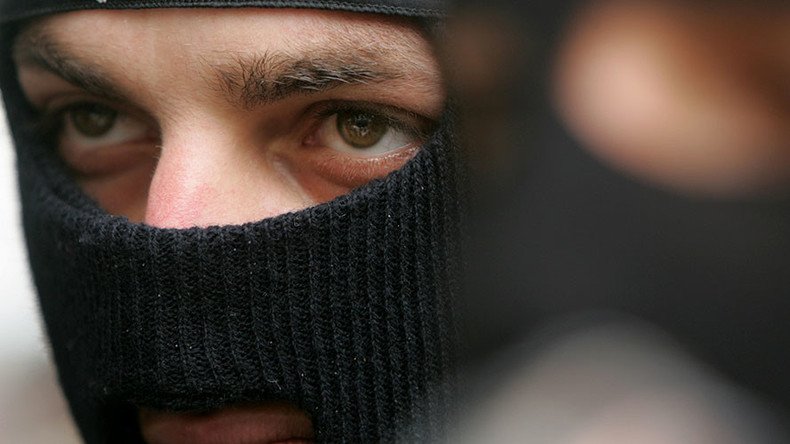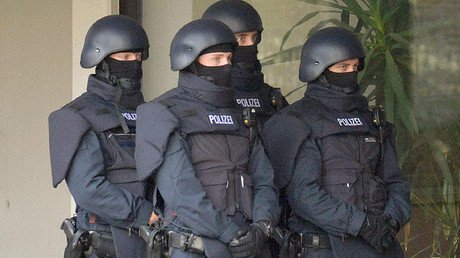Islamist radicals in Germany backed by Saudi Arabia, Kuwait & Qatar – German media

A number of Islamic religious groups from the Gulf States are supporting the radical Salafist movement in Germany with the suspected approval of their governments, Suddeutsche Zeitung paper and NDR and WDR broadcasters said, citing a security report.
The groups, based in Kuwait, Qatar and Saudi Arabia, are engaged in missionary activities on German territory, including the construction of mosques, holding educational seminars and sending Islamic preachers to German cities.
Their apparent purpose is that of spreading a fundamentalist version of Islam, a report jointly prepared by the German intelligence service (BND) and the domestic security and counter-terrorist service (BfV) says, Suddeutsche Zeitung (SZ) reported.
The NGOs mentioned in the report seen by the German media on Monday mostly support and provide financial assistance to various Salafist groups in Germany that promote “retrograde and intolerant interpretation of Islam,” the paper seen by the SZ says.
The organizations in question are the Kuwait-based Revival of Islamic Heritage Society (RIHS), Qatari Shaykh Eid Charity Foundation and the Muslim World League from Saudi Arabia that are involved in financing the establishment of the Salafist mosques and organization of education seminars.
The report says that all of these organizations follow “a long-term strategy of [spreading] their influence” in Germany.
For instance, the RIHS financed the construction of a Salafist center in the town of Fellbach-Oeffingen in southwest Germany through a real estate company. The construction of the building, which would have occupied a space of 3,300 square meters, was stopped after police intervention. According to the BfV, the center was part of a future “strategic plan of missionary activities in southern Germany.”
German media add that the RIHS was earlier banned in the US on a similar suspicion of supporting terrorist groups.
All NGOs mentioned in the report officially distance themselves from any form of violence and terrorist activities, although they “do not consistently distinguish between missionary and violent Salafism” in practice, the report warns, adding that there is evidence that they are currently supporting “violence-prone Salafist structures and networks.”
Berlin has repeatedly demanded that Saudi Arabia stop supporting radical Islamists in Germany. In response, Riyadh always said that the NGOs, which support Muslims in Germany, are independent from the government and the Saudi authorities cannot influence their work.
The Saudi ambassador to Berlin, Awwas Alawwad, dismissed all accusations concerning the kingdom’s support for German Salafists. “Saudi Arabia builds no mosques in Germany, sends no imams [there] and has no connections to German Salafism,” he told Tagesspiegel daily, adding that the Saudi-based “Muslim World League” is “not a Saudi organization” and has “nothing to do with the Saudi government.”
READ MORE: Face veils must be banned in Germany ‘wherever legally possible’ – Merkel
He then added that the “Muslim World League” ceased its activities in 2013 and does not work in Germany anymore. The ambassador also offered cooperation on security issues to Germany by saying that “if German government receives a tip about some suspicious activity, it should share this [information] with the Saudi authorities.”
However, the report states that the NGOs “have very close ties to the state officials in their countries of origin.” It goes on to say that Saudi Arabia sees its “global missionary activities as its permanent state interest and as a part of its foreign policy.”
Meanwhile, German authorities fear that the activities of the Saudi NGOs and religious organizations based in the Gulf State would lead to further radicalization of German Muslims as well as refugees living in Germany, and would contribute to the growth of the Salafist movement, which is deemed extremist by German security services.
Earlier, the he BfV warned that the Salafist movement in Germany is rapidly growing in numbers and is now one of the most swiftly growing extremist groups in the country. According to the security service, as many as 9,200 people belong to this group. The most recent security services’ report said that the number of Salafists in Germany has almost reached 10,000.
The report warns that the Salafist groups are likely to “further intensify their activities in Europe and particularly in Germany.” It also suggests that European authorities create a list of known preachers and activists that have links to the mentioned organizations and ban them from entering the Schengen Zone that allows free travel through most European countries.
The report came just weeks after another confidential security services report was seen by Germany’s Die Welt daily. It said that Islamist seminars and Salafist propaganda play a significant role in the radicalization of Muslims in Germany.
The report that surfaced in the German media in late November said that 48 percent of known German jihadists, who joined terrorist groups in Syria and Iraq, fell under the influence of radical Salafist mosques and 44 percent were influenced by terrorist propaganda on the internet.
About 27 percent of future jihadists attended “Islamic seminars” held by extremist recruiters and 24 percent were radicalized through a program involving the free distribution of the Koran launched by an Islamist missionary network called “The True Religion.”
“The True Religion” group was banned by German Interior Minister Thomas de Maiziere, who subjected it to a large-scale police investigation in 60 German cities on November 15, in which some 190 mosques, offices, and apartments associated with it were reportedly searched in 10 German states.
The group previously launched a massive initiative to hand out free copies of the Koran in 15 countries, including Germany, France, the UK, Sweden, Austria, and Brazil. The Islamist campaign aimed to get a translated copy of the sacred Muslim book “to every household,” reportedly distributed roughly 3.5 million copies by summer of 2016.
After the group was banned in November, another Salafist organization, “We Love Muhammad,” was seen distributing free copies of the Islamic prophet’s biography in pedestrian zones in the cities of the German western state of North Rhine-Westphalia, including Cologne, Munster and Iserlohn.
















